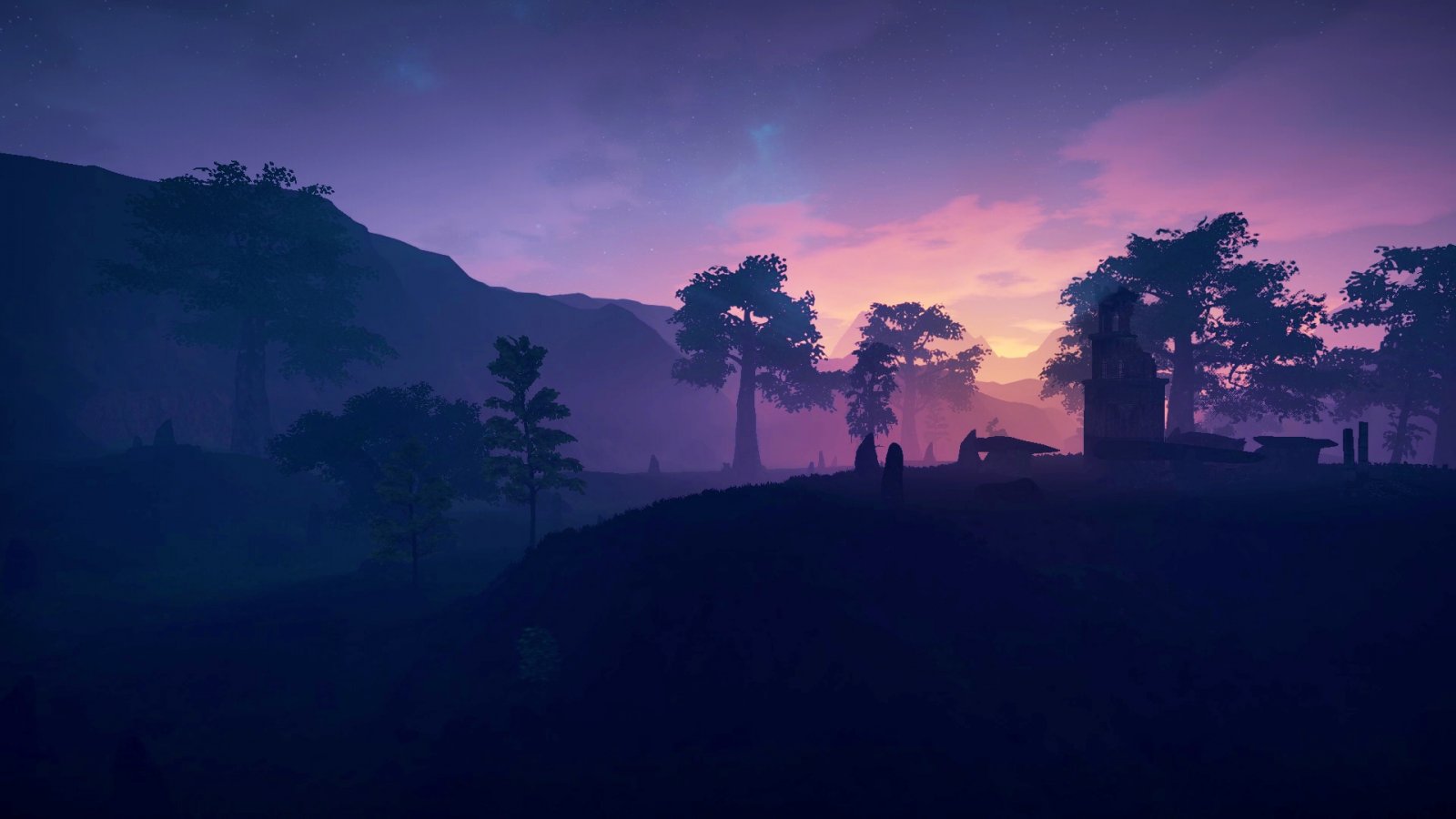Edited by: Tiffany Lillie
An Adventurer’s Life
Outward, developed by Nine Dots Studio and published by Deep Silver, is a survival open-world RPG. In it, you play not as a chosen one, but a random villager seeking to pay your way out from under a blood debt to their clan. Rather than “a life for a life” sort of blood debt, this one is a mere monetary fee passed down from generation to generation as fiduciary reparation for past wrongs. After your most recent merchant expedition fails, you’re left with a handful of days to make your next payment before your hometown riots against you.
Today’s Word is “Diegesis”
As much as the opening plot seems to revolve around this blood debt, it only really serves as a call to adventure. After you collect enough money to make your next payment, your next quest is essentially how you are going to get out of said debt entirely. However, this first quest serves as a nice introduction to all of the mechanics you’ll need to keep in mind throughout the rest of the game. First off is inventory management. Unlike other games in the genre, Outward allows you to choose your backpack. This affects your play in multiple ways. Most obviously, the larger your backpack, the more you can carry. Conversely, the larger the backpack, the harder it is to roll and dodge during combat. While you can drop your backpack with a press of a button, you lose access to everything in it for the duration of the fight. To mitigate this, you have your pockets to hold your combat necessities. This inventory space is much smaller but doesn’t impact your movement.
Outward also incorporates a variety of survival elements into its gameplay. Weather changes from rain to snow to sun to everything in between. Your armor, on top of providing physical and magical protection, can also assist in mitigating these temperature and weather debuffs. Go out adventuring in the snow in only your skivvies and you’ll likely catch a cold if not freeze to death altogether. You’ll also need to watch your food and water intake. Moreover, unprepared food and undistilled water also increase your chance of contracting a disease. Sleep is also vital to your adventuring life. Repeated all-nighters will see your maximum health and stamina decrease. You can mitigate this with potions and beverages, but sleep is certainly the better option since it also provides its own well-rested buff.
Mid-Fantasy
I hesitate to call Outward’s world “high fantasy.” Magic abounds, your small village has its own dedicated alchemist, but it doesn’t exactly pervade all aspects of society. There are no fantasy races, just various stripes of human, but you’ll fight your share of kobolds, dire wolves, and other such beasties. You can’t start as a mage, but by passing certain trials you can increase your connection to mana via ley lines. It occupies an interesting space between Skyrim and Westeros.
Magic itself has its own interesting set of mechanics. All spells require preparation. Not in the Vancian, “fire and forget” sort of preparation. Rather, there are different stripes of magic. Some spells require you to recite rune words in a certain order. Some of these rune spells, specifically the higher-level ones, require you to have cast a separate rune spell beforehand. Other spells require you to be in a specific environment or have petitioned the winds of an area to listen to you. Still others require you to have a certain tool or item in your hand to utilize them. Most spells will still have some effect if you cast them without the proper materials, but casting them properly and discerning how to use them effectively is half the fun of playing a mage.
A Living World
Overall, Outward is very, very engaging. While, graphically, it’s not much to look at, each of the major overworld maps is visually distinct and provides a different landscape and challenges to overcome. Each overworld also has its own theme, successfully setting the tone for the area you’re exploring. The area outside your village has a triumphant tune, beckoning you to explore what’s over the next mountain. The swamp theme is lower and moodier, accenting the feeling that anything could come climbing out of the water to attack you. Dungeon music is subdued and ambient, focusing more on the trepidation of being in an enclosed space with various nasties looking to skin your hide. The one gripe I really have is the fact that the battle music is the same for every encounter. While it does do its job, both being unobtrusive and compelling, having some variety would be nice.
For as broad and well-developed as the world is, it often feels rather small. Any given overworld map can be traversed within ten to twenty minutes at a brisk trot. This is useful when your current objective is to travel between places or you want to check the merchants in a different town. However, especially in the desert, this detracts from the encompassing wonder of exploration Outward takes great pains in setting up. It really kills the mood when you realize that each map is just a handful of encounters between dungeons, most of which are marked on your map. Given that the map doesn’t show your location, forcing you to navigate by landmark, this can be a hard realization to come to. Sadly, it is also inescapable.
Brutality
Outward’s death mechanic also casts the smallness of the world in sharp relief. Rather than getting a "game over" and forcing you to restart from your last save, Outward reduces your stats and rolls a random death event for your character. If you died to bandits, maybe they kidnapped you and you awake in a cell having to escape their compound. Maybe a wanderer picked up your body from the road and brought you back to the nearest town. While this lends itself the feeling of one continuous adventure, having to backtrack across a map for the tenth time can be tiresome.
Expect to die frequently, too. As noted at the top of this preview, you are just some random schmuck. Part of the opening quest is learning your first combat skill. Oftentimes it is better to sneak around an encounter than tackle it head-on. Rather than penalize you for this, Outward awards no experience for any task. Rather, power progression comes from spending money at trainers for new skills and stat improvements. Each trainer has a variety of generic skills pertaining to their speciality, as well as more advanced skills, should you decide to invest much more money and one of your three specialization points.
FINAL THOUGHTS
Outward goes a long way to make you feel like you’re on your own personal adventure. Freeform character development, attending to your avatar’s individual needs, and the freedom to just explore the world on your whim, more than make up for the small handful of failings present at this time. Outward captures that Tolkien-esque feeling of camping out on the side of the road, huddled near a fire, keeping watch against the terrors of the night.


